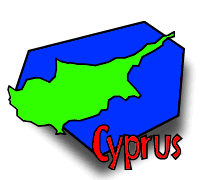Word of the Day: Nay and oh-houi — "Yes" and "no"
Tech Fact of the Day: Safety
Person of the Day: K. Serge
Group Dispatch (Cyprus), January 24, 1998

Questions? Ask Corinne ![]() !
!
Return to Fast Facts
 |
 |
 |
 |
 |
|
Itinerary/ Journal |
Discussions |
About Cyprus |
eDscape Projects |
Scrapbook |
|
|
|
|
|
While Corinne and andrEa are on Cyprus, Anthony, Ethan, and Padraic are traveling overland to Jordan:
topics: border crossing, Dead Sea, Jordan River Valley, Jericho; jump to dispatch
Rider Notes: January 24, 1998
Person of the Day: Donald and Alma Barker
Place of the Day: Allenby/King Hussein Bridge
Group Dispatch (Israel and Jordan), January 24

Questions? Ask Padraic ![]() !
!
Return to Fast Facts
 |
 |
 |
 |
 |
|
Itinerary/ Journal |
Discussions |
About Jordan |
eDscape Projects |
Scrapbook |
|
|
|
|
|
Copyright 1997-2004 BikeAbout. All rights reserved.
